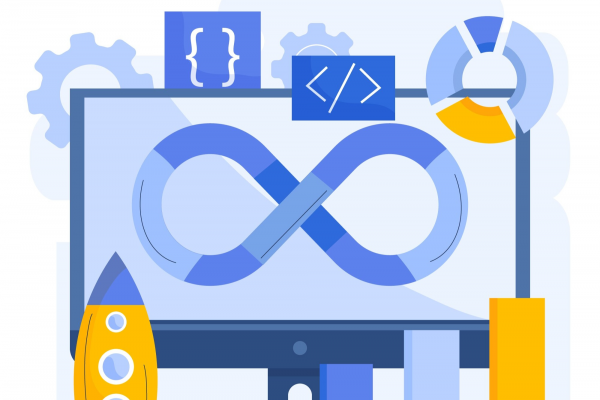The pace at which technology is reshaping the digital landscape is unprecedented. Nowhere is this more evident than in mobile app development. Today’s developers are riding a wave of innovation powered by Artificial Intelligence (AI) that is altering every facet of app creation and deployment. From streamlining code generation to redefining user experiences, AI is becoming a cornerstone of modern mobile app development.
In this blog, we explore how AI—especially generative AI—along with emerging trends such as artificial general intelligence (AGI) and other AI innovations, are transforming the way mobile apps are built, optimized, and deployed. Moreover, we discuss how IT consulting companies such as STL Digital are leveraging these advancements to help businesses stay competitive in a rapidly evolving market.
AI-Driven Disruption in Mobile App Development
The rise of AI in mobile app development is more than just a fleeting trend—it’s a revolution that is redefining what apps can do. Generative AI (genAI), which can produce content or even code on demand, is paving the way for enhanced productivity and creativity. Developers are already witnessing the benefits: from automated bug detection to the creation of dynamic user interfaces that adapt to individual preferences.
One telling statistic from Stack Overflow’s Developer Survey 2024 illustrates this change: 76% of all respondents are using or are planning to use AI tools in their development process. This insight underscores the urgency for development teams to adopt these tools to streamline workflows and boost productivity.
By integrating genAI into the development pipeline, teams can shift their focus from routine coding tasks to higher-level challenges like app design and optimization. For businesses seeking to accelerate digital transformation, these advances in AI directly translate into faster time-to-market for innovative mobile applications.
Enhancing User Experience with AI Applications in Business
AI is not just about enhancing the developer’s toolkit—it’s about redefining Digital Experiences. Mobile apps powered by AI can offer hyper-personalized experiences tailored to individual behaviors, interests, and real-time contexts. AI application in business now spans across various functions, from personalized recommendation engines to intelligent virtual assistants and predictive analytics integrated directly into apps.
A recent McKinsey Global Survey on AI reveals that more than 78% of organizations now use AI in at least one business function, and 21% have fundamentally redesigned their workflows as a result of AI adoption. This trend is particularly significant for mobile apps, where integrated AI solutions are helping brands deliver enriched user experiences and drive business growth.
With mobile apps increasingly serving as the primary interface between businesses and their customers, mobile app development teams are under immense pressure to incorporate AI-driven functionalities. These features are not only intended to create smarter user interactions but also to serve as powerful tools for data-driven decision-making and targeted marketing.
For instance, imagine an e-commerce mobile app that learns from each user’s browsing behavior to make personalized recommendations in real time. This capability not only improves customer satisfaction but also increases conversion rates, showcasing the immense potential of AI applications in business.
The Role of Generative AI and Artificial General Intelligence
Among the various AI technologies reshaping mobile app development, generative AI stands out as particularly transformative. Generative AI technology is enabling developers to build systems that can autonomously produce content, ranging from text and images to even pieces of code. This is closely tied to the broader concept of artificial general intelligence, where AI systems are not just specialized tools but are capable of a more human-like understanding and adaptability.
Generative AI is set to become a crucial driver of AI innovation in mobile app development. By automating labor-intensive processes, such as interface design and testing, generative AI empowers developers to focus on the strategic aspects of product development. Furthermore, these tools can help IT consulting firms advise their clients on how to reduce development costs and streamline application workflows.
As mobile devices become increasingly powerful, with the latest chipsets already meeting benchmarks for AI processing, developers can harness these hardware advancements to run complex AI algorithms directly on the device. For example, IDC predicted that generative AI-enabled smartphones will surge by 344% and capture 18% of the total smartphone market by the end of 2024. Although this statistic focuses on the hardware side, it reflects the overall trend of AI integration within the mobile ecosystem, which in turn supports advanced mobile app development.
This convergence of AI hardware and software means that mobile apps of the future will be designed not only to deliver exceptional user interfaces but also to perform advanced data analytics on the go. As a result, developers will be better positioned to implement innovative features that harness the power of artificial general intelligence in practical, user-friendly applications.
Key Benefits and Challenges in AI-Driven Mobile App Development
Benefits
- Increased Productivity: AI-powered coding assistants and automated testing tools reduce the time developers spend on mundane tasks. By allowing developers to focus on more creative and strategic work, AI is set to boost overall productivity across development teams.
- Enhanced User Experience: With the ability to analyze user data in real time, AI-driven mobile apps can offer customized recommendations, adaptive interfaces, and predictive functionalities that greatly enhance the user experience.
- Rapid Innovation: The integration of generative AI, such as STL Digital’s AInnov and other advanced technologies, is accelerating the pace of AI innovation. This allows companies to roll out updated versions of their apps more quickly—an essential advantage in today’s highly competitive mobile app market.
Challenges
- Data Privacy and Security: With enhanced AI capabilities come heightened concerns around data security. Developers and IT consulting teams must work together to ensure that AI-driven features comply with global data protection regulations and maintain user trust.
- Integration Complexity: Implementing robust AI features into mobile apps requires overcoming significant technical hurdles, including ensuring that the on-device processing capabilities (for example, using neural processing units) are sufficient to handle complex AI models.
- Cost and Resource Allocation: The adoption of cutting-edge AI technologies can be expensive. Organizations need to balance the potential benefits of AI with the costs associated with integrating these systems into their existing app development workflows.
IT consulting practices are increasingly called upon to address these challenges. Through expert advice and strategic planning, IT consulting professionals help businesses implement AI solutions responsibly and efficiently, ensuring that mobile app development remains agile and innovative even as technology rapidly evolves.
Future Trends Shaping Mobile App Development
AI-First Design Paradigm
The future of mobile app development lies in embracing an AI-first design approach. Developers must rethink traditional app architectures to make them inherently intelligent. By integrating AI at every level—from backend processing to front-end user interfaces—apps can deliver real-time insights and services that adapt to users’ contextual needs.
Automation and End-to-End Development
Emerging trends in automation are revolutionizing the entire software development life cycle. Tools powered by generative AI are set to automate coding, testing, and even deployment procedures, drastically reducing development timelines. Forrester’s research indicates that mobile app development teams that invest in AI-driven development platforms are likely to achieve significant gains in efficiency and quality.
Integration of Hybrid Pricing and Value Measurement Models
As AI begins to drive more value in mobile applications, enterprise software vendors are rethinking traditional pricing models. New data valuation approaches are emerging that better account for AI-driven enhancements—models that can be applied to mobile app subscription services. This evolution in business models is expected to spur further innovation in how mobile apps are monetized and how their success is measured.
The Convergence of Mobile Hardware and Software Capabilities
Advances in smartphone hardware—such as increased processing power and improved AI chips—are critical enablers of AI innovation in mobile app development. As IDC’s optimistic forecasts suggest, the growing power of mobile devices will allow developers to offload more AI computations directly onto the device rather than relying solely on cloud processing. This will lead to more robust and responsive applications that can operate effectively even in offline or low-connectivity situations.
Increasing Role of IT Consulting
For businesses that are adapting to these rapid changes, IT consulting is vital. Expert IT consulting services help companies navigate the complexities of integrating AI in mobile app development, aligning technology investments with business strategy, and ensuring regulatory compliance. As organizations work to harness AI application in business, the guidance provided by IT consulting professionals will be indispensable in driving successful outcomes.
Embracing the AI Revolution in Mobile App Development
The convergence of Generative AI, powerful mobile hardware, and evolving software development practices is set to dramatically reshape the future of mobile apps. Today’s developers are not only building smarter apps but are also creating platforms that deliver personalized, context-aware services that were once the realm of science fiction.
To remain competitive, companies must embrace these transformations by investing in innovative development platforms, integrating cutting-edge AI tools, and leveraging trusted IT consulting expertise like STL Digital to manage the transition. As artificial general intelligence and generative AI continue to mature, the potential for mobile apps to transform everyday business operations and elevate user experiences will only increase.
Businesses that act now to adopt these AI-driven strategies in Mobile App Development will be well-positioned to reap the benefits of accelerated innovation and enhanced operational efficiency. The future is clear—AI is not just an add-on feature; it is the core of tomorrow’s mobile apps and the driving force behind the next wave of digital transformation.



